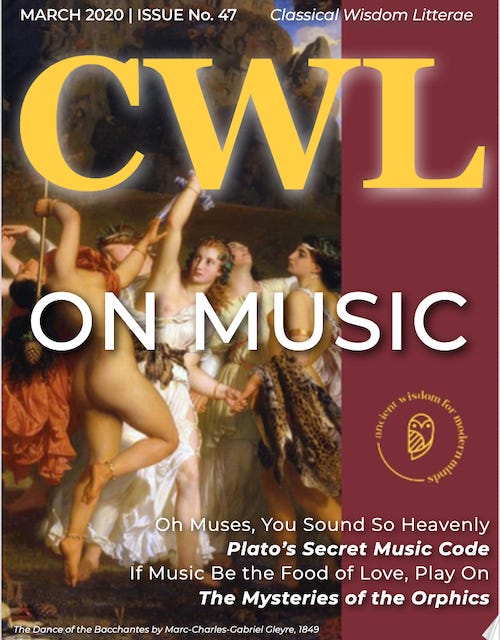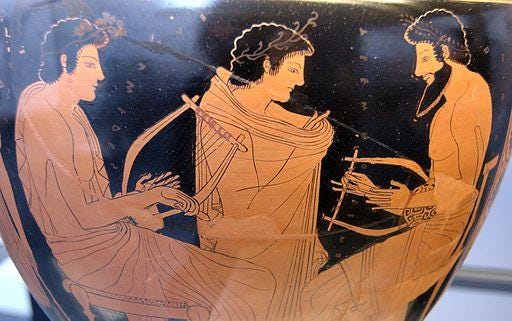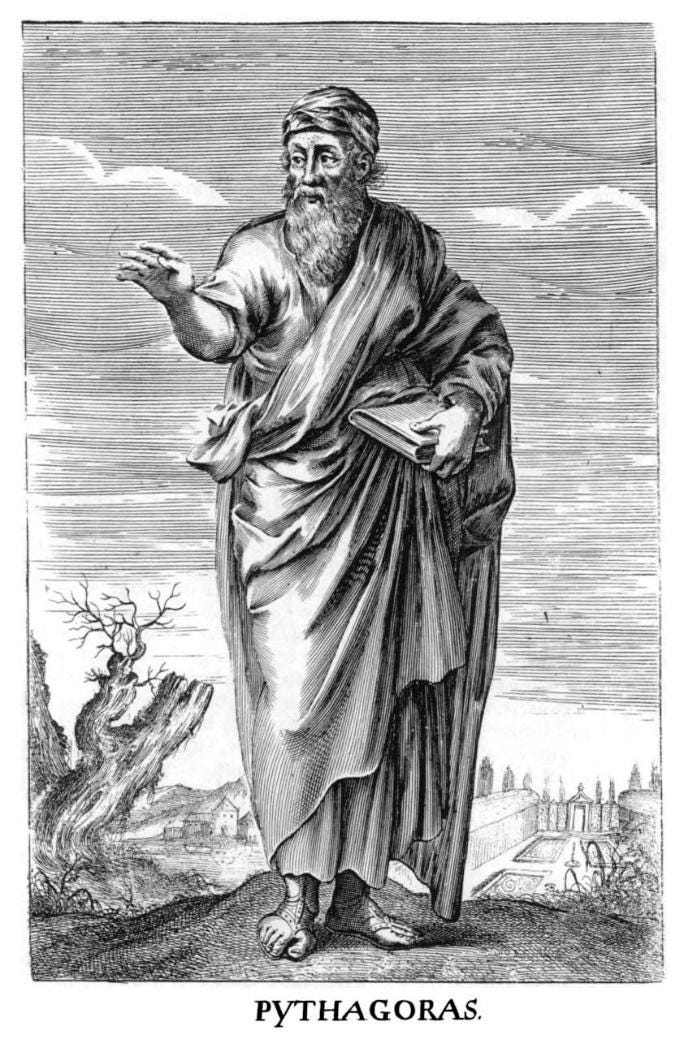If Music be the Food of Love, Play on…
Understanding the Soundtrack to the Ancient World
Dear Classical Wisdom Member,
All events, philosophical debates, poetic recitals, dramatic festivals and elaborate rituals were not done in silence.
They had a soundtrack.
Indeed, there is no better way to time travel to the ancient world than by recreating their music… or trying to understand how it all sounded.
We may sit down and read Homer, for instance, but this is a FAR CRY from how the ancient Greeks would have experienced it.
Homer was sung… as our next Roundtable Discussion guest, Homeric scholar and author of The Dance of the Muses: Choral Theory and Ancient Greek Poetics, A.P. David, knows very well.
Classical Wisdom Members: Our next Roundtable Discussion will take place on December 28th! Please let us know which section (found in the Essential Classics Hardback Anthology) you would prefer to discuss?
If you haven’t ordered your own copy of the Essential Classics Hardback Anthology, Make sure to do so today!!! This special Book only offer will end THIS WEEKEND.
Learn more about the Book 100 years in the Making HERE.
Similarly we recreate the tragedies and comedies… or read Plato’s Symposium… without consideration of the important rhythms and instruments that went into these recitals.
Today’s in-depth article explores the ancient world of music, from the musical modes to the philosophers’ opinions, learn why Plato thought pipes were bad but Pythagoras found them eternal, below.
Want to know more about ancient Music? Today’s column is the first piece in our Classical Wisdom Litterae Magazine dedicated entirely to Music from the ancient world. Discover the wide range of instruments, including strings, percussions and wind instruments, the mythological inspirations, as well as the secret music cults in this exciting Member’s only edition.
Members can enjoy our full Classical Wisdom Litterae Issue, On Music, HERE:
Now… onto the muses, music and much more…
All the best,
Anya Leonard
Founder and Director
Classical Wisdom
If Music be the Food of…the Muses
By Stella Samaras
If music be the food of love, play on…
What a load of malarkey I can hear them saying in the agora.
Music, the food of love, love alone? In whose century? Music was a gift of the muses and touched mathematics as well as poetry, science as well as philosophy. It permeated mythology, drama, ritual, athletics, dance, ethics, storytelling, and of course, love.
A fully rounded education was one that both music, in this broad sense, and gymnastics in terms of physical prowess, were taught.
Music in all of its ancient glory was inspiration. Everyone was taught to sing and play musical instruments. Until Pericles, all music was a combination of played instruments and sung lyrics. Then late in the 5th C BCE, instruments began to be played on their own, as music evolved from performing just a civic, martial, or religious role to include a secular one.
Music in the way we appreciate it – its melody, harmony and rhythm was not only listened to, it was competed over in dramatic festivals, its lyric beauty was enjoyed at symposiums, choristers were trained to sing it in choirs and music permeated social rituals. How much a part of Ancient Greek life it was is witnessed by its presence on so many Grecian urns and in myths e.g., Orpheus and Eurydice; Hermes and the invention of the Kithara; Odysseus and the Siren’s song; Marsyas vs Apollo in competition, to name a few.
Like so many of the gifts of the gods, music was also philosophised over.
Pythagoras (c 550-500 BCE)
Pythagoras, ever the mathematician, recognised in music a musical ratio or scale composed of perfect musical intervals. By plucking the string of a lyre and then stopping it half way along its length, then dropping to stop it a third along, then stopping at a quarter way of the original, followed by a fifth, and then going back and plucking the strings to produce harmonies an octave above the original and progressing down at set intervals (of a fifth, a fourth and a third above that) he produced the basic musical scale or mode. He then described his stopping intervals with the mathematical ratios 1:2, 2:3, 3:4, 4:5, where 1 denoted the unstopped string, 2 the string stopped in half, etc. Pythagoras called the first three of the intervals “perfect” intervals and incorporated them into the Pythagorean ideal where the Pythagorean Decad (10) resulted from the sum of the number of these intervals i.e., 1+2+3+4=10. He considered these ratios to be the basis of all reality. Ever wondered why he is considered a bit of a mystic?
Keep reading with a 7-day free trial
Subscribe to Classical Wisdom to keep reading this post and get 7 days of free access to the full post archives.






